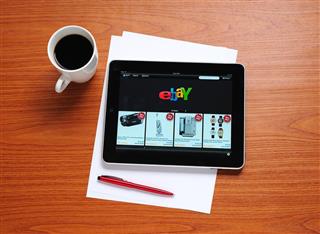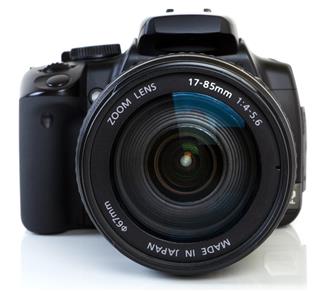
Comparison shopping is not just your mother’s Saturday pastime anymore. With the advent of online shopping, comparison shopping has become an important aspect, that can help you get the best bargains on the net.
By: Ira Allen
As a quick glance through the articles surrounding this one will show, these days, you’re unlikely to find an even halfway savvy consumer buying anything without looking around a little online first. Well, except for eBay auction items, maybe. In fact, I just bought a crummy camera posing as a much better one on eBay, and was so caught up in a small bidding war and in really wanting to get something good for cheap that I didn’t even look the thing up before entering the winning bid. But that’s different―I’m not an even halfway savvy consumer. Maybe a quarter way savvy, but that’s about it. I’m talking here about people who buy smart.
Except here’s the thing: what does it mean to buy smart, actually? I’m not comparison shopping is bad―not at all―but I do want to suggest that even a habit of comparison shopping doesn’t guarantee the ‘best buy’. Moreover, I suspect that doing all one’s comparison shopping online actually makes finding the ‘best buy’ less likely, especially if we really stop to think about what we mean by the ‘best buy’. Here is a personal anecdote to draw out the points I hope to make.
I moved to Paris almost two months ago―Paris, the shopping capital of the world! And I’m broke, working 70-hour weeks to live downtown in a 7th-story walk-up. Now, you might quite reasonably take issue with my life choices, but you cannot dispute that I’m in need of finding the ‘best buy’ with each purchase I make. Especially once you know that I’ve had to mostly furnish this apartment myself, and have been renovating it, too. Let’s re-cap: I’m broke, living in one of the world’s more expensive cities, surrounded by a plethora of options for every consumer decision, and am renovating and outfitting a studio apartment for as little as I possibly can.
So, the ‘best buy’ would seem at first glance simple: it’s whatever’s cheapest. Or, at second glance, it’s the cheapest option that I actually like. At a third glance, it’s more complex, but stays along these same lines: the ‘best buy’ is whatever item that feels like the best negotiation between what I want (from virtually limitless options) and what I can afford (with a more than a little restricted pocketbook).
In fact, though, the ‘best buy’ has come to mean something more than that for me. It’s not just about an item; it’s about an overall experience. The ‘best buy’ is that which offers the best interaction with my environment, balancing a delicate complex of factors: the standard price, style, quality, sure; but also a new experience, an interesting encounter with someone, seeing a different part of the city, some moral satisfaction with the purchase, even physical exercise.
Take, for example, the aforementioned (digital) camera. Now, that was not the best purchase, not at all. I bought it for about 80 Euros (~110 to 115 USD), and I didn’t check around in advance, and now I’m stuck with this lousy piece of thick plastic with awkward sliding mechanisms, no lens cover, and a wait-time of about half-a-minute after each photo. Not good. (By the way, that’s an Easypix S312―not recommended.) What’s worse, it just arrived in my mailbox one day; I didn’t even have to leave my house.
I know that last part is something a lot of people value, but I don’t. Even if this had been a ‘good buy’ in terms of price and quality, it wouldn’t have been a ‘best buy’ because it gave me nothing, in terms of an experience of the world around me. After all, isn’t a large part of the historical value of trade―so often touted by subscribers to the system of capitalism―precisely its ability to bring people together, to motivate new movements? So, why on earth would I want to buy a camera online, eschewing the world of opportunities around me here in Paris?
Here’s the thing: I was comparison shopping at the time. I was checking out camera prices on eBay in order to know if I were getting a good deal on one here in town. Then, sadly, I got caught up in auction madness. Again, that’s not exactly a point against comparison shopping as such―it seems to have a lot more to do with my own psyche―but I suspect I’m not 100% alone in this particular tendency. Especially given what I hear and read about other people’s credit card debt.
Far better would have been―as I did for my sheets, my computer monitor and speakers, lamps, a coffee table, a toaster oven, and other sundries―to check on Craigslist (paris.craigslist.org) and to window shop. Because, see, here’s the thing: For every item I’ve bought from a private individual or at a shop somewhere along the way (some were bargains, and others were not), I’ve had an interesting interaction and have seen a little more of the city I live in. By exercising a little common sense in my purchases (and doing some budgeting), I really haven’t had or wanted to ‘comparison shop’ for most of my purchases, at least not in the sense of obsessive checking around on the internet.
A final example, and that’s it from me. I need a new pair of shoes, and I’ve tried both methods: hardcore comparison shopping through Internet merchants, and lots and lots of window shopping. The latter, almost needless to say, is far more pleasurable. As I stroll from place to place (and remember, I’m working my tail off; it’s not like I’m just hanging around the city), I stop here and there to check out a good pair in a window.
Sometimes, if I have an extra moment, I’ll stop in, maybe even try on a pair. I’ve seen a lot of shoes I like―and, truth be told, I really need a pair; I don’t have any black ‘dress’ shoes at the moment, and that’s no good―but I’m not ready to buy just yet. I wouldn’t say I’m comparison shopping, exactly. I’m just waiting for the right pair to make themselves known to me. And that’s the way shopping should be.





